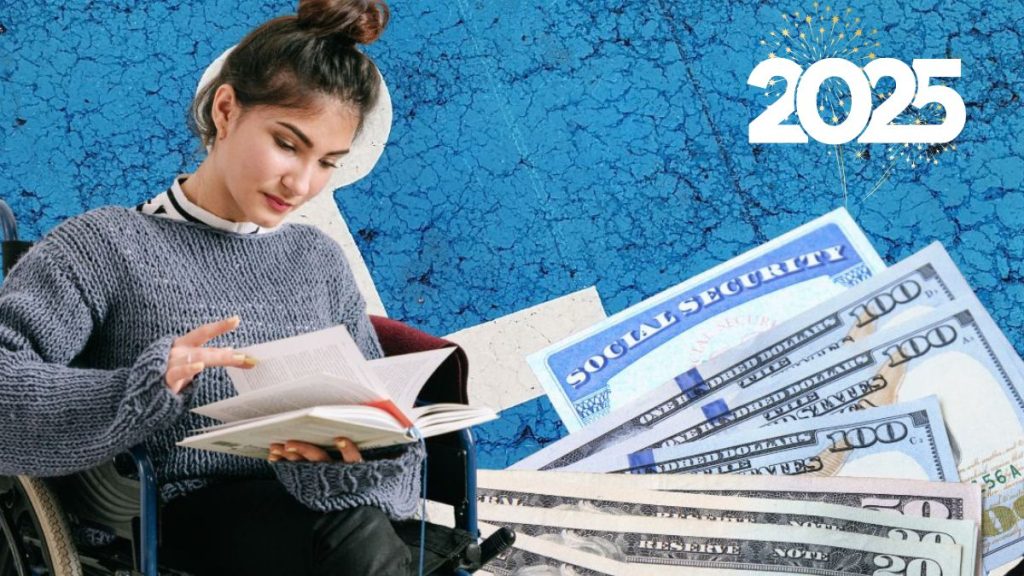SSDI payments are almost over in December. As a matter of fact, most Social Security recipients have received their money this month. Even the SSI payment that has been scheduled for December 31, 2024, will be for January and it will bring the 2025 COLA. The first Disability Insurance payday will be for 2 different groups of recipients.
Actually, they will receive their checks and direct deposits on January 3, 2025. Hence, it will be the normal payday the Social Security Administration has set for them. Since there will be no changes, this money will be for you if you are receiving both SSI and SSDI. Also, if you began collecting disability payments before May 1997.
SSDI on the 2nd, 3rd and 4th Wednesday in January
The first Wednesday in January will be New Year’s Day. Then, all the Social Security Disability Insurance payments have been scheduled for the following Wednesdays. To get money on the second Wednesday you must:
- have your birthday from 1-10
- not be an SSI recipient
- not be on SSDI before May 1997
- remain eligible (still have a qualifying disability)
All those beneficiaries who have filed and met all these conditions will enjoy their payment with COLA on January 8. If you also meet all these requirements but you were born from the 11th to the 20th, your monthly payment will arrive on January 15. Or if your birth date is after that, it will be issued on January 22.
Checks and Direct Deposit amounts social security payment in January 2025
Thanks to the 2025 Cost-of-Living Adjustment (COLA) all SSDI recipients will benefit from a 2.5% extra in their monthly payment from January onward. So, if your payment was $1,000 in 2024, it will be $1,025 in 2025.
The average SSDI payment is currently $1,542. After the 2.5% from Social Security, it will increase by $38. Therefore, the average Social Security Disability Insurance payment will be about $1,580.
Only high-earners will be able to qualify for the largest benefit payment in 2025. The new maximum amount for Disability Insurance will be $4,018.
How do I go about applying for SSDI payments if I am new to the program?
The following is a simplified overview of the process of applying for Social Security Disability Insurance (SSDD) if this is the first time one is applying for the benefits. This information is not to be considered as legal advice in any way; should you require legal advice, it is recommended that you engage an attorney or contact the Social Security Administration (SSA) for assistance.
1. Confirm Eligibility
Before applying, review the SSA’s basic requirements to see if you might be eligible:Before applying, review the SSA’s basic requirements to see if you might be eligible:
Work Credits: This means that one has to have worked at a place of employment that is under the Social Security Act. You typically need certain number of ‘credits’ which varies with your work history and earnings.
Medical Disability: You should fulfill the SSA’s disability standards, that is, your condition hinders your ability to work or perform basic work-related tasks for at least one year or will lead to death. For more details, visit the SSA Disability Benefits page.
2. Gather Required Documents
To help the application process go smoothly, prepare the following documents and information:
- Social Security Number
- Birth Certificate (or other proof of birth)
- Medical Evidence
- Names and contact details of all doctors, clinics, and hospitals.
- Detailed medical records, lab results, and diagnoses.
- Dates of all visits and treatments to the doctor, including information about employment.
- Employment History
- Names and addresses of previous employers.
- Dates of employment.
- Details of the job description and any other employment-related information.
It is advisable to have all these documents well-organized to make the process of filing the claim easier.
3. Submit an Application
You can apply for SSDI in one of three ways:You can apply for SSDI in one of three ways:
Online (Recommended): Start your application through the SSDI Application Portal.
By Phone: To apply for benefits, you can call the SSA at 1-800-772-1213 (TTY 1-800-325-0778) or to schedule an appointment to do so.
In Person: It is advisable to have an appointment at your nearest Social Security office. In order to get the directions to your local office, you can turn to the SSA Office Locator.
4. Follow Up on Your Application
After you submit your application:After you submit your application:
Response Time, Normally you will get a written response in form of a letter which shall be sent to your address. The time taken to get an initial decision may take a few months at minimum.
Additional Information Requests, In certain situations the SSA or a state disability agency may ask for more information by way of medical records or arrange for an examination.
Decision, If you qualify for it, you will get a brief on the amount of benefit you are to receive and the schedule of payment.
If denied, one can still make an application for review.
5. Understand the Appeals Process
If your initial claim is denied, you can appeal in most circumstances. The main levels of appeal are:The main levels of appeal are:
- Reconsideration
- Hearing before an Administrative Law Judge (ALJ)
- Appeals Council Review
- Federal Court
Each stage has specific deadlines and requirements. Read the instructions that come together with the notice of denial or check the SSA Appeals Information page for further information.
